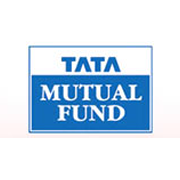| Fund Name | ||||
|---|---|---|---|---|
 ICICI Pru Dividend Yield Equity Fund - Direct (G) Dividend Yield Fund | Equity | 13.60% | ₹5,000 | ₹6,232.17 | Invest |
 Tata Dividend Yield Fund - Direct (G) Dividend Yield Fund | Equity | 11.74% | ₹5,000 | ₹1,015.62 | Invest |
 LIC MF Dividend Yield Fund - Direct (G) Dividend Yield Fund | Equity | 9.51% | ₹5,000 | ₹697.98 | Invest |
 Baroda BNP Paribas Dividend Yield Fund - Dir (G) Dividend Yield Fund | Equity | 8.63% | ₹1,000 | ₹870.30 | Invest |
 HDFC Dividend Yield Fund - Direct (G) Dividend Yield Fund | Equity | 6.90% | ₹100 | ₹6,394.28 | Invest |
 SBI Dividend Yield Fund - Direct (G) Dividend Yield Fund | Equity | 5.83% | ₹5,000 | ₹9,278.89 | Invest |
 Sundaram Dividend Yield Fund - Direct (G) Dividend Yield Fund | Equity | 5.68% | ₹5,000 | ₹919.75 | Invest |
 UTI-Dividend Yield Fund - Direct (G) Dividend Yield Fund | Equity | 5.53% | ₹5,000 | ₹3,904.04 | Invest |
 Franklin India Dividend Yield Fund - Direct (G) Dividend Yield Fund | Equity | 2.60% | ₹5,000 | ₹2,416.60 | Invest |
 Aditya Birla SL Dividend Yield Fund - Direct (G) Dividend Yield Fund | Equity | 2.24% | ₹1,000 | ₹1,489.75 | Invest |





























